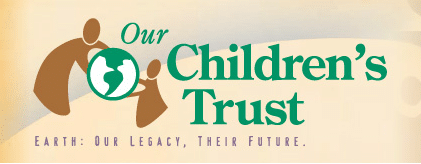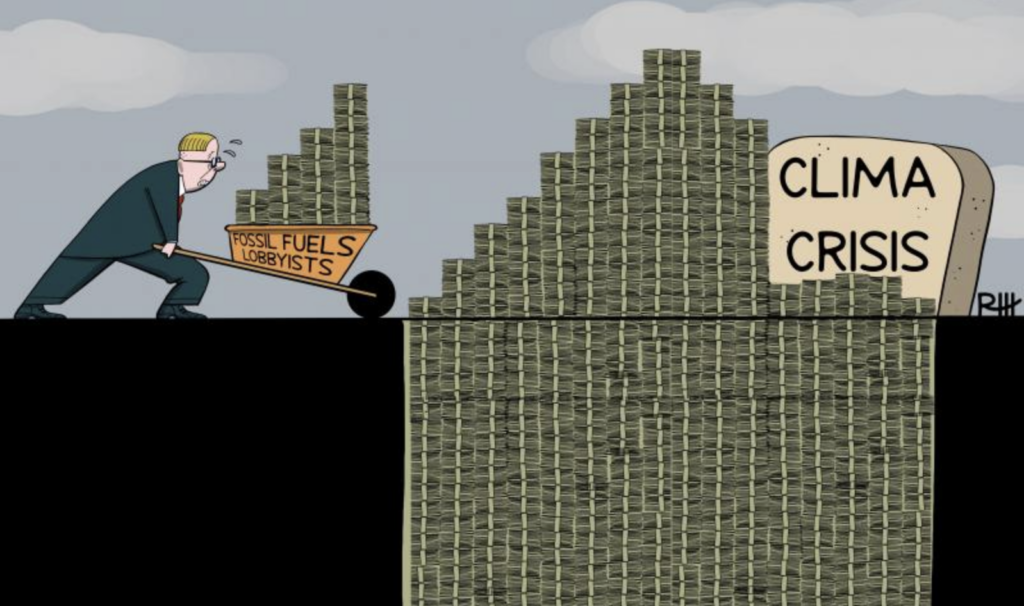Last May, a group of young Americans, fed up with government inaction on climate change, decided to sue to protect their future. The group, led by 16-year old Alec Loorz, founder of Kids vs. Global Warming and the iMatter campaign, filed legal actions against the federal government and 49 states, seeking to force the states and federal government to develop a comprehensive plan to reduce greenhouse gas pollution to levels deemed necessary by the best available science.
Earlier today, a D.C. District Court judge ruled that the National Association of Manufacturers and other polluter interests can intervene on the government’s behalf to argue that they have the right to keep on dumping carbon pollution into the atmosphere.
So the case is sure to prove controversial and the world will be watching to see how the courts handle the matter in the weeks and months to come.
As Loorz, now 17, explained to me last week, the decision to sue the government came only after seeing the failures of the Executive and Legislative branches in addressing the problem.
Last May, when the lawsuits were first filed, Loorz shared his reasons for suing the government with a post on GOOD. (Full disclosure: I asked him to write the piece, and edited it.) The whole essay is powerful and well worth reading, but here are a couple core takeaway points.
The government has a legal responsibility to protect the future for our children. So we are demanding that they recognize the atmosphere as a commons that needs to be preserved, and commit to a plan to reduce emissions to a safe level.
Loorz and his fellow plaintiffs – all minors – do have help in this mission from some elders.
A couple of years ago, Loorz was introduced to University of Oregon Law professor Mary Wood, who had been working for years to develop a legal theory around an “atmospheric trust.”
The theory is based on the premise, according to Wood, “that all governments hold natural resources in trust for their citizens and bear the fiduciary obligation to protect such resources for future generations.”
For you lawyers out there, “atmospheric trust litigation” is rooted in the Public Trust Doctrine, an evolution of old British “Commons Law” that has been used successfully in the past to preserve and protect natural resources – like air and water – for public use.
Wood and a number of legal experts are helping support the cases, and, yes, actual grownup attorneys will be arguing the cases in court. A non-profit, Our Children’s Trust, was also formed to help organize the legal actions.
So where do things stand ten months later after the suits were first filed?
Many of the states are trying to dismiss the case, in most cases arguing that a resource as vast as the atmosphere couldn’t be under the jurisdiction of a single state. In other words: this will have to be decided on the federal level.
So what of the federal case then? In September, Loorz and six other youth plaintiffs asked for a preliminary injunction for “immediate court intervention to compel government action on climate change.”
The “preliminary injunction” is, according to Our Children’s Trust, “essentially, a “fast track” procedure to avoid any further damage to the atmosphere.” The lawsuit targeted six federal agencies.
According to Our Children’s Trust, specifically, the preliminary injunction was filed
“to compel federal agencies to develop a comprehensive plan to prevent further increases in U.S. carbon dioxide (CO2) emissions and to force government action in reducing CO2 emissions consistent with what current scientific analysis deems necessary to halt catastrophic climate change.”
“Historically there have been statute-based lawsuits, where you find a particular problem and you go after that problem. But labeling the polar bear an endangered species is not going to solve the human-made climate crisis,” said Phil Gregory, Principal Attorney with Cotchett, Pitre & McCarthy, and co-counsel for the federal lawsuit.
“We have to approach it at the macro level. We have to say to the courts, you need to declare there’s a problem here, and order our government to do what is necessary to protect the trust.”
There have been a couple of interesting developments in the federal case since the motions were first filed. First, in December, a judge in the U.S. District Court for the Northern District of California granted the Federal Governments’ motion to transfer venue to Washington D.C., citing the “national significance of the case.”
Last fall, the National Association of Manufacturers (NAM), a powerful industry lobby group, requested permission to join the defense. Earlier today, Judge Robert Wilkins of the District Court of D.C., decided to allow NAM, Delta Construction Co. and four other California business and trade groups to intervene on the government’s behalf.
The polluters’ defense will be that they have a “legally protected cognizable interest to freely emit CO2,” according to BNA coverage.
In other words, the groups representing the oil, gas and coal industries will argue that, because they’ve been allowed to use the atmosphere as a pollution dump for free historically, they deserve to keep doing so. That should be interesting to watch play out in court.
Upon the judge’s announcement to let the polluter interests intervene, the newcomers immediately filed a motion to dismiss the entire case. A hearing on the motions to dismiss will be held May 11.
Stay tuned for further updates from the hearings, and profiles of the other plaintiffs.
Finally, here’s a short video from iMatter, Our Children’s Trust, and WITNESS about Loorz’s path to plaintiff-dom.
Subscribe to our newsletter
Stay up to date with DeSmog news and alerts







